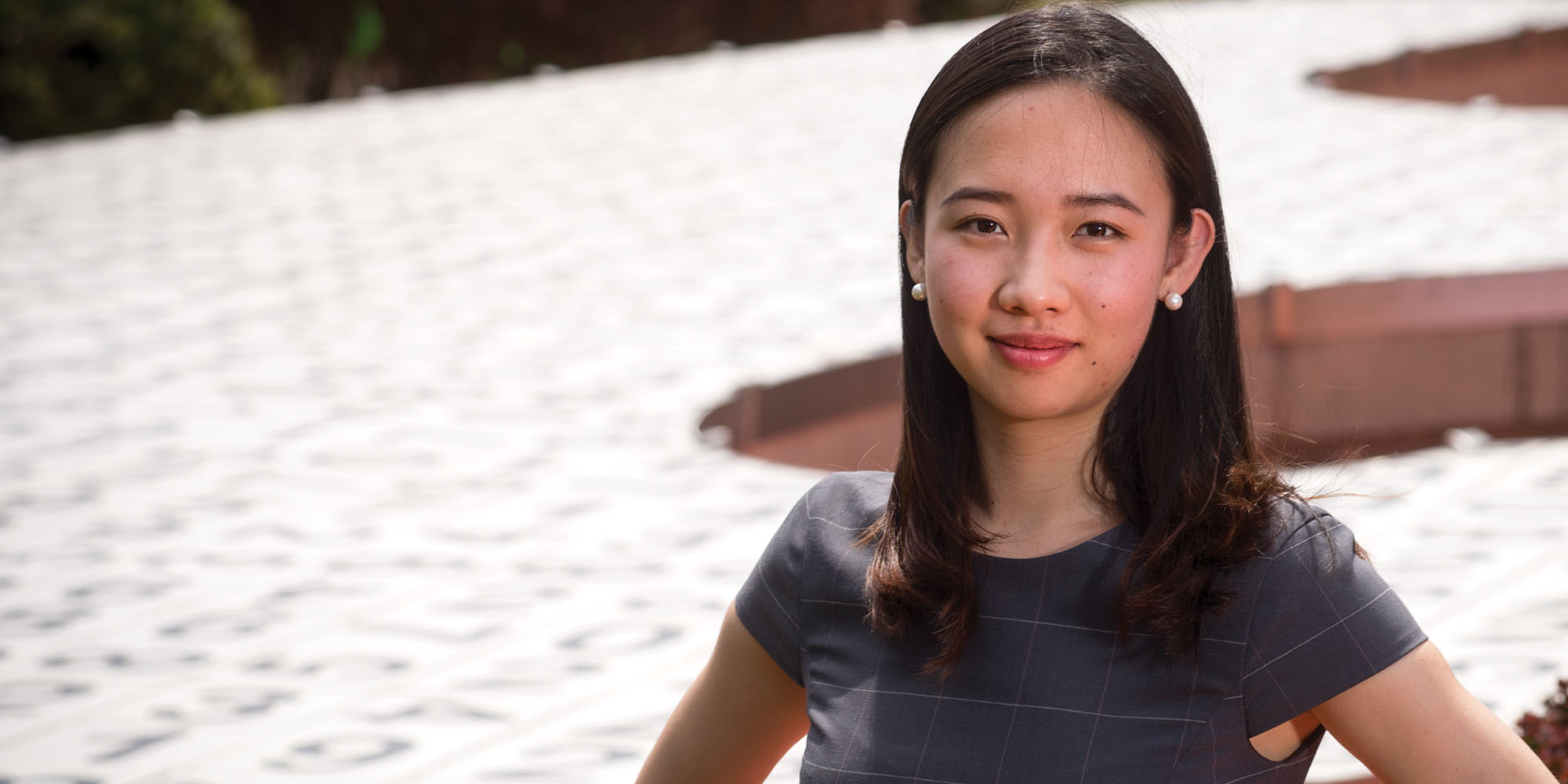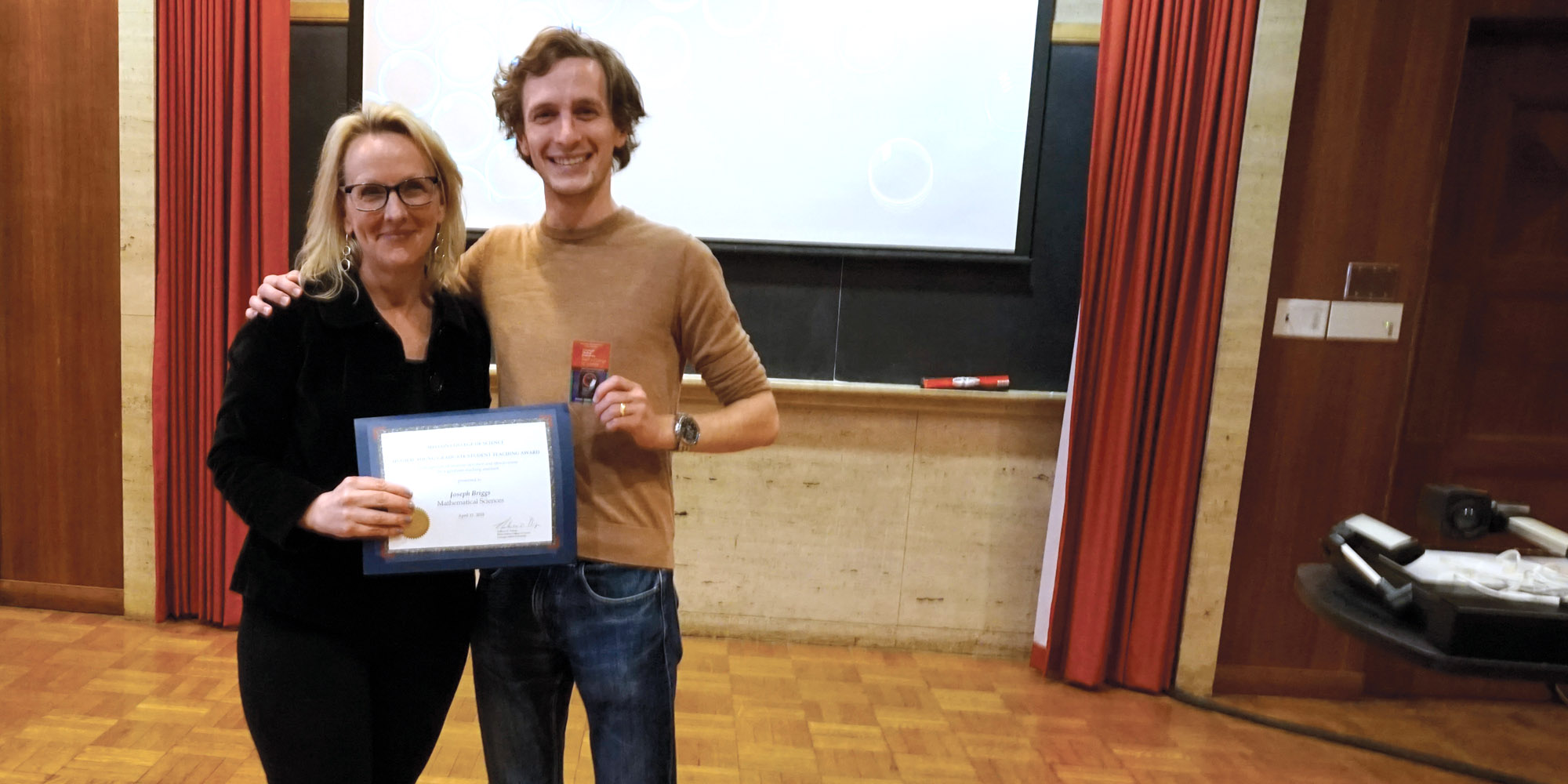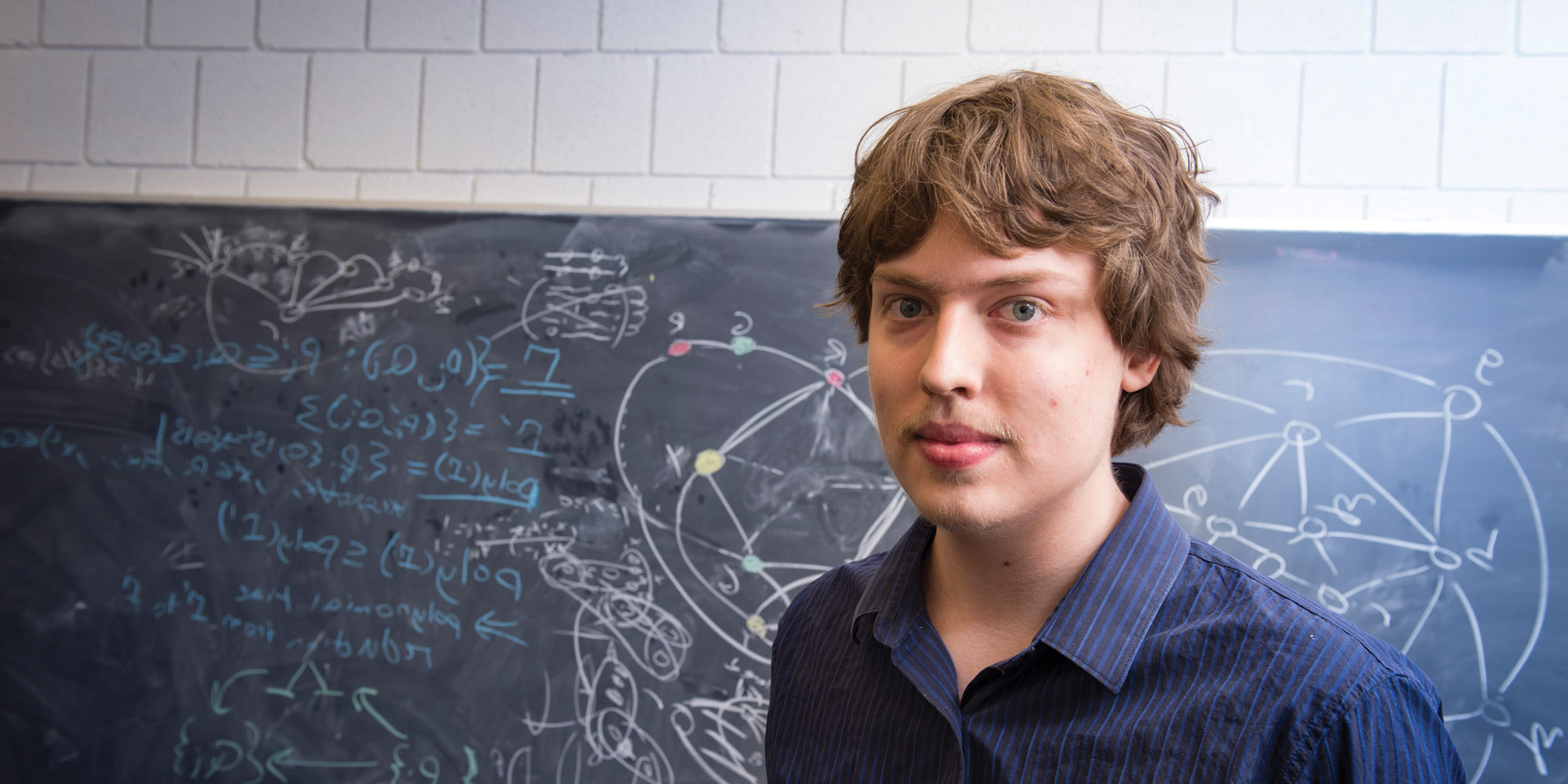Class 2018

Senior April Li Receives Fugassi and Monteverde Award
April Li received the 2018 Dr. J. Paul Fugassi and Linda E. Monteverde Award. The award recognizes the graduating female senior in the Mellon College of Science with the greatest academic achievement and professional promise.
As part of the Department of Mathematical Sciences’ Computational Finance program, Li was a dedicated student leader who enriched the experiences and opportunities for students in the program and across campus through her passion for computational finance. In 2016, Li co-founded the Quant Club, which has been an invaluable resource for students interested in quantitative finance.
In her role as a leader in the Quant Club, Li helped organize mock interviews on campus in fall 2017. She conducted resume workshops for students, where she used her own experience in finding internships to help students prepare for recruiting season.
Li was also president of the Sales and Trading Academy at Carnegie Mellon and a member of the Mortar Board Society of Scholars. In April 2018, the Department of Mathematical Sciences hosted an inaugural “Women and Mathematics at CMU” conference that included a mini-course on connections between partial differential equations and mathematical finance. Li helped organize the conference and served as a panelist.
In addition to her student organization leadership, Li was an accomplished teaching assistant and undergraduate researcher. She conducted extensive undergraduate research on utility indifference pricing in incomplete financial models with Professor of Mathematical Sciences Bill Hrusa from June 2015 through May 2016 and served as a teaching assistant in two of his courses.
“April is one of those extremely rare individuals who excels at everything she does. She is creative, her analytical ability is extremely high, she is very skilled at coding, she has excellent mathematical intuition, she understands the interplay between mathematical models and real-world phenomena and she is an outstanding communicator,” said Hrusa. “I consider April to be more of a colleague than a student.”
Li’s potential for professional success was prominent since early in her undergraduate career. Following her sophomore year, Li landed an internship with Tudor Investments as a quantitative analyst in the global research department. It is unusual for a sophomore to get their foot in the door so early. Internships in the finance industry, which often lead to full-time job offers, are generally available to juniors and seniors who can begin working within a year of finishing their internships.
Li managed a similar feat her junior year by applying for an internship at four major financial institutions — Goldman Sachs, JPMorgan Chase, Bank of America and Citigroup. She had offers from all four banks before mid-semester. She accepted Goldman Sachs’ offer as a sales and trading summer analyst intern in their securities division.
Since graduation, Li is continuing at Goldman Sachs as a sales and trading analyst in interest rates products. She is part of a new breed of traders who make decisions based on the use of sophisticated mathematical and statistical models and who employ ideas from data analytics and machine learning, together with an understanding of financial markets and economics to guide their trading decisions.
“The scientific education that I have received at CMU will allow me to make more informed trading decisions,” Li said. “In particular, the training that I have received in the BSCF program equips me to have a solid understanding of and to be mindful of the risks associated with trading complex financial instruments.”

Joseph Briggs Receives Graduate Student Teaching Award
Joseph Briggs was honored with the Mellon College of Science’s 2018 Hugh Young Graduate Student Teaching Award.
“Joe Briggs embodies everything one could possibly want in a [teaching assistant],” Associate Teaching Professor Deborah Brandon wrote in a letter nominating Briggs for the award. “He is a gifted expositor. He is extremely reliable and very helpful, and he really cares about his students. In addition, he has that rare ability to make the learning experience memorable (in a good way).”
In his nearly five years at Carnegie Mellon University, Brandon said that Briggs̓ flexible teaching style allowed her to assign him to teach alongside many different instructors in a variety of courses.
“I have never had a TA that I would trust more than Joe to elegantly explain mathematical material to undergraduates,” Associate Professor Wesley Pegden said in a letter supporting Briggs̓ nomination.
A dozen of Briggs̓ former students wrote in to confirm his teaching abilities.“Before an exam, I would take advantage of his office hours to ask him several questions about the material,” sophomore Shruti Murali wrote. “He answered all of them and was always excited when I had more questions because he̓s just that kind of instructor — always going above and beyond to make sure his students understood the material.”
Junior Makayla Filiere echoed that sentiment about Briggs̓ energy and passion for instruction.
“He just loves math and gets so excited about math concepts and teaching others,” Filiere wrote. “He would solve the problem and be jumping all around, pumped up at how it is that we just solved this problem! To see a TA so passionate about math naturally makes you more excited about it as well.”
Briggs graduated in 2018 with a thesis on the subject of online algorithms and extremal structures. He is now a post-doctoral fellow in mathematics at the Technion Israel Institute of Technology.
Image:
Rebecca Doerge, the Glen de Vries Dean of the Mellon College of Science, presenting the MCS Graduate Student Teaching award to Joseph Briggs.

Joshua Brakensiek’s Undergraduate Success Leads to NSF Graduate Fellowship
During his time at Carnegie Mellon University, mathematical sciences graduate Joshua Brakensiek kept busy. He was a Goldwater Scholar, a Putnam Fellow and a member of the Carnegie Mellon Putnam Team that placed first in 2016. He conducted astrostatistical research with faculty working in statistics and cosmology and theoretical computer science research with faculty in the School of Computer Science. He published papers and presented at conferences around the world. All while working toward joint bachelor’s and master’s degrees in mathematical sciences through the Department of Mathematical Sciences’ Honors Program.
“I am exceedingly thankful that I was able to call Carnegie Mellon my academic home for four years. The innovative opportunities I had access to changed my life,” said Brakensiek, who graduated this past May.
Brakensiek came to Carnegie Mellon University as part of its Knaster-McWilliams Scholars program, which is one of only a few scholarship-supported programs in the United States that pairs an honors program with increased access to faculty and early research opportunities.
Early on, Brakensiek developed an interest in theoretical computer science, an area that seamlessly connects his interests in mathematics and computer science. He worked closely with Professor of Computer Science Venkatesan Guruswami during his four years at Carnegie Mellon on several projects in coding theory, computational complexity theory, producing new results in constraint satisfaction and approximation algorithms.
His work resulted in several publications, manuscripts and presentations at major computer science and mathematics conferences and symposia, including the Symposium on Discrete Algorithms, APPROX and RANDOM.
“I am thankful to Carnegie Mellon, especially the Mellon College of Science, for giving me the freedom and opportunity to explore research in such depth as an undergraduate,” Brakensiek said.
During his senior year, Brakensiek continued to receive national awards and accolades for his research and academic performance. The Computing Research Association awarded Brakensiek one of four Outstanding Undergraduate Researcher Awards for his outstanding potential in computing research.
Following a national competition, Brakensiek was one of 2,000 awardees, selected from 12,000 applicants, to receive a Graduate Research Fellowship from the National Science Foundation. The fellowship is helping to fund his graduate studies at Stanford University as he pursues his Ph.D. in theoretical computer science.
“Looking back, I am amazed at how well Carnegie Mellon equipped me to pursue graduate studies in my field. As soon as I entered Stanford’s program, I felt that I had much to contribute due to the many professors, mentors and friends who had helped me at CMU,” Brakensiek said.
Class of 2018 Destinations

Doctoral Programs:
CalTech, Applied Math
Chicago, Math
Duke, Math
Illinois, Math (2)
Minnesota, Economics
Stanford, Computer Science
UCLA, Biostatistics
UCSD, Math
Wisconsin, Math
